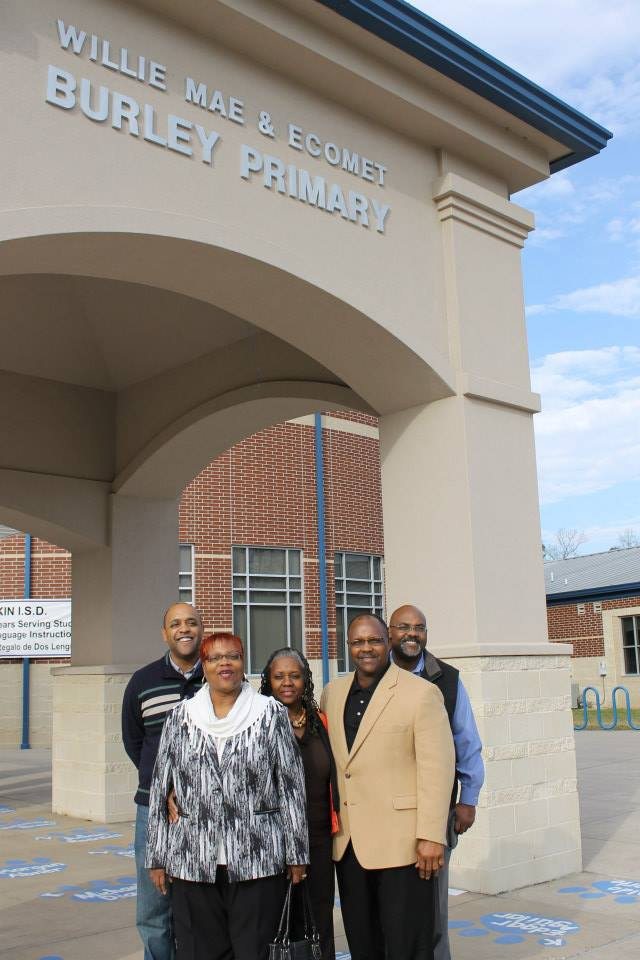College of Education & Human Sciences Welcomes Dean Burley
Dr. Hansel Burley, the new Dean of the College of Education and Human Sciences, came from a family of educators. His father, Ecomet, was a school principal, and his mother, Willie Mae, was a teacher. Burley Primary School in Lufkin, TX, was named to honor their years of dedication. As a young student, Burley took his parents’ love of learning to heart, spending hours happily reading through the family’s encyclopedias.

On Martin Luther King Day in 2015, Burley Primary School celebrated its fifth anniversary. Family members attending the festivities included (from right): Dr. Hansel Burley, his brother Ecomet Burley, Jr. (since deceased), sisters Carrye Burley Brown and Sylvia Burley Goff, and nephew Ecomet Burley III.
Burley recently served as Chair of the Educational Psychology and Leadership Department, and Professor of Educational Psychology in the College of Education at Texas Tech University (TTU). Since 2016, he led TTU’s largest graduate department through curriculum reform, graduate review and strategic planning. The department has six programs: Instructional Technology, Educational Psychology, Special Education, Educational Leadership, Higher Education and Counselor Education. His 25 year career at TTU includes serving as Associate Dean for Graduate Education and Research, and Associate Dean for Academics and Data.
Widely published on institutional research and issues surrounding diversity and access to higher education, Burley developed a different perspective on the word “underserved” as it has been used to refer to students, communities and schools.
“When we use that term” Burley explained, “it may imply that someone else holds all the resources and the power. I would like us to focus more on what those students bring to us. It’s the same with first generation college students. Sometimes we see the deficits first. It takes some rethinking to recognize the promise that’s already within them.”
Burley acknowledges two challenges ahead for the College. One is considering issues raised in the 2018 Yazzie/Martinez lawsuit, which argued that New Mexico public schools fail to equitably address the educational needs of specific student populations. It outlines a lack of supportive programs and services for Native American and low-income students, students with special needs, and English language learners.
“I call this an outwardly facing challenge,” Burley said. “Although the Governor has provided additional K-12 funding, we need to respond appropriately. We prepare teachers and principals, so we are expected to be part of the solution.”
“Internally, I’d like us to develop a strategic vision and strategic plans,” he added. “There has been a decline in undergraduate enrollment, and I’d like to turn that around. We have opportunities, as a group, to show leadership.”
The COVID-19 pandemic has raised new issues for every educator. “School districts and teachers all over the country are turning to Colleges of Education to help them deal with this sudden need for online instruction,” Burley said. “K-12 and college instruction will never be the same. Going forward, I think we’ll always have some kind of hybrid, teaching online and practicing physical distancing in classrooms.”
“There are challenges,” he continued. “In a classroom, you can pick up on body language, observe interactions, and see how well a student is engaged. This is not always possible online. And how will students work together on classroom projects in pairs or teams with physical distancing?”
“We need to prepare resilient educators for changes and new possibilities,” Burley stated. “My hope is there will be UNM researchers interested in rethinking instructional design, so New Mexico teachers can add new methods to their repertoire.”

